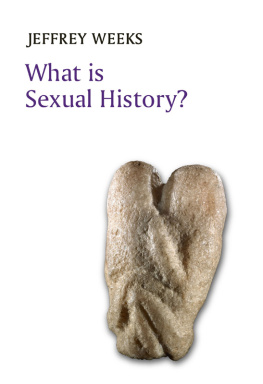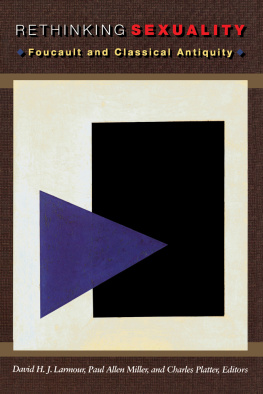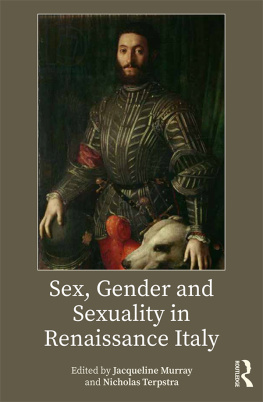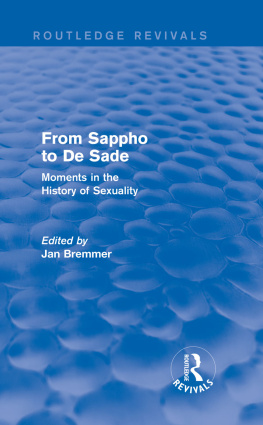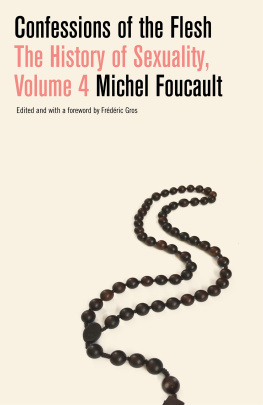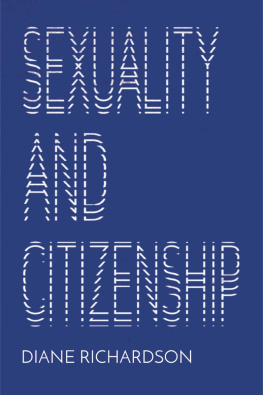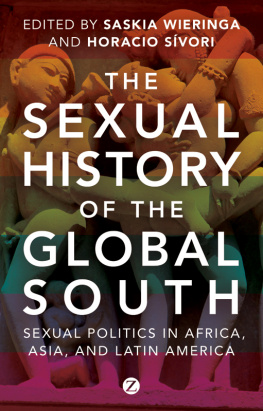
What is History? series
- John H. Arnold, What is Medieval History?
- Peter Burke, What is Cultural History? 2nd edition
- Peter Burke, What is the History of Knowledge?
- John C. Burnham, What is Medical History?
- Pamela Kyle Crossley, What is Global History?
- Pero Gaglo Dagbovie, What is African American History?
- Shane Ewen, What is Urban History?
- Christiane Harzig and Dirk Hoerder, with Donna Gabaccia, What is Migration History?
- J. Donald Hughes, What is Environmental History?
- Andrew Leach, What is Architectural History?
- Stephen Morillo with Michael F. Pavkovic, What is Military History? 2nd edition
- Sonya O. Rose, What is Gender History?
- Brenda E. Stevenson, What is Slavery?
- Jeffrey Weeks, What is Sexual History?
- Richard Whatmore, What is Intellectual History?
Copyright page
Copyright Jeffrey Weeks 2016
The right of Jeffrey Weeks to be identified as Author of this Work has been asserted in accordance with the UK Copyright, Designs and Patents Act 1988.
First published in 2016 by Polity Press
Polity Press
65 Bridge Street
Cambridge CB2 1UR, UK
Polity Press
350 Main Street
Malden, MA 02148, USA
All rights reserved. Except for the quotation of short passages for the purpose of criticism and review, no part of this publication may be reproduced, stored in a retrieval system, or transmitted, in any form or by any means, electronic, mechanical, photocopying, recording or otherwise, without the prior permission of the publisher.
ISBN-13: 978-0-7456-8024-8
ISBN-13: 978-0-7456-8025-5 (pb)
A catalogue record for this book is available from the British Library.
Library of Congress Cataloging-in-Publication Data
Names: Weeks, Jeffrey, 1945 author.
Title: What is sexual history? / Jeffrey Weeks.
Description: Cambridge, UK ; Malden, MA : Polity Press, 2016. | Series: What is history? | Includes bibliographical references and index.
Identifiers: LCCN 2015036001| ISBN 9780745680248 (hardcover : alk. paper) |
ISBN 0745680240 (hardcover : alk. paper) | ISBN 9780745680255 (pbk. : alk.
paper) | ISBN 0745680259 (pbk. : alk. paper)
Subjects: LCSH: SexHistory. | Sexual ethicsHistory.
Classification: LCC HQ12 .W443 2016 | DDC 176/.4dc23 LC record available at http://lccn.loc.gov/2015036001
Typeset in 10.5 on 12 pt Sabon by Toppan Best-set Premedia Limited
Printed and bound in the UK by CPI Group (UK) Ltd, Croydon, CR0 4YY
The publisher has used its best endeavours to ensure that the URLs for external websites referred to in this book are correct and active at the time of going to press. However, the publisher has no responsibility for the websites and can make no guarantee that a site will remain live or that the content is or will remain appropriate.
Every effort has been made to trace all copyright holders, but if any have been inadvertently overlooked the publisher will be pleased to include any necessary credits in any subsequent reprint or edition.
For further information on Polity, visit our website: politybooks.com
Dedication
In loving memory of my parents
Raymond Hugh Weeks (19241976)
and
Eiddwen Weeks (19212014)
Preface and Acknowledgements
My interest in the history of sexuality began as I was researching the history of political and social ideas in late nineteenth-century Britain. It was difficult to avoid the realization (though generations of historians had managed to do so) that the radical and socialist writers of the period I was reading about had also been intensely interested in sexuality, and were heavily influenced by the feminist ideas of the period, by the first stirrings of a new homosexual consciousness, and by the early days of sexology, the new science of desire. It's not surprising, then, that throughout my writing career I have been intensely interested in how ideas of sexuality, and the very idea of sexuality itself, emerged at the end of the nineteenth century and began to shape social and political thinking.
This book in a sense continues that interest. It is in part about the idea of a sexual history, how it emerged, a little shyly, perhaps, in the nineteenth century, had a quiet, even covert existence for the first half of the twentieth century, and only began to stretch its limbs and transform itself from the 1960s and 1970s, in the wake of the cultural and social upheavals of the period. But sexual history is not just about ideas. It is a highly practical enterprise, involving a range of skills and practices, from archive searching to building new archives, from interpreting obscure texts to creating new knowledge, from trying to uncover traces of the past to writing histories of the present, from producing distinguished tomes to building a website and making documentary films. Sexual history today embraces both high theory and community histories, ivory-tower specialisms and democratic practices. It has become a major presence in the wider practice of history, and a historical presence in the practice of sexual politics.
Which means it is impossible to be fully comprehensive in a brief overview of sexual history in a short book. I have therefore focused on several key themes: the invention of the subject and the development of a critical sexual history; the historicizing of homosexuality and sexual and gender dissidence; the relationship between gender and power, and their intersection with various dimensions of oppression and resistance; the mainstreaming of sexual history, and the emergence of modern sexuality; the globalization of sexual history; and the significance of community history. I hope that in exploring these themes the reader will gain insight into the wider adventures of doing sexual history.
Writing is by its nature a lonely business, but doing history is necessarily a collaborative one, because we build on the work of many others. I have expressed my debt to friends, colleagues and collaborators in my previous books and I won't repeat all their names here. I will, though, repeat my warmest thanks to them for all they have contributed in different ways over many years. Some individuals, however, have given particular support in writing this book, through ideas, references, intellectual stimulation, invitations to give papers or write articles, critical appraisal, administrative support and emotional sustenance. It's a pleasure to thank Peter Aggleton, Dennis Altman, Sue Bruley, Mariela Castro Espin, Matt Cook, Daniel Defert, Mary Evans, Robert French, Brian Heaphy, Clare Hemmings, Janet Holland, Jonathan Ned Katz, Brian Lewis, Karin Lutzen, Daniel Marshall, Rommel Mendes-Leite, Henrietta Moore, Ken Plummer, Paula Sequiera, Frederic Simon, Carol Smart, Marc Stein and Graham Willett. I must also thank the anonymous readers of the book for their positive and constructive comments. I have tried to accommodate their suggestions, but I alone, of course, remain responsible for the final product.
My partner, Mark McNestry, has as always given indispensable support. Without him, there would be no book.
My mother died when I was writing this book, thirty-eight years after my father. I miss them both, respect them deeply, and thank them for making everything possible. I dedicate this book to their memory with love.
Next page
